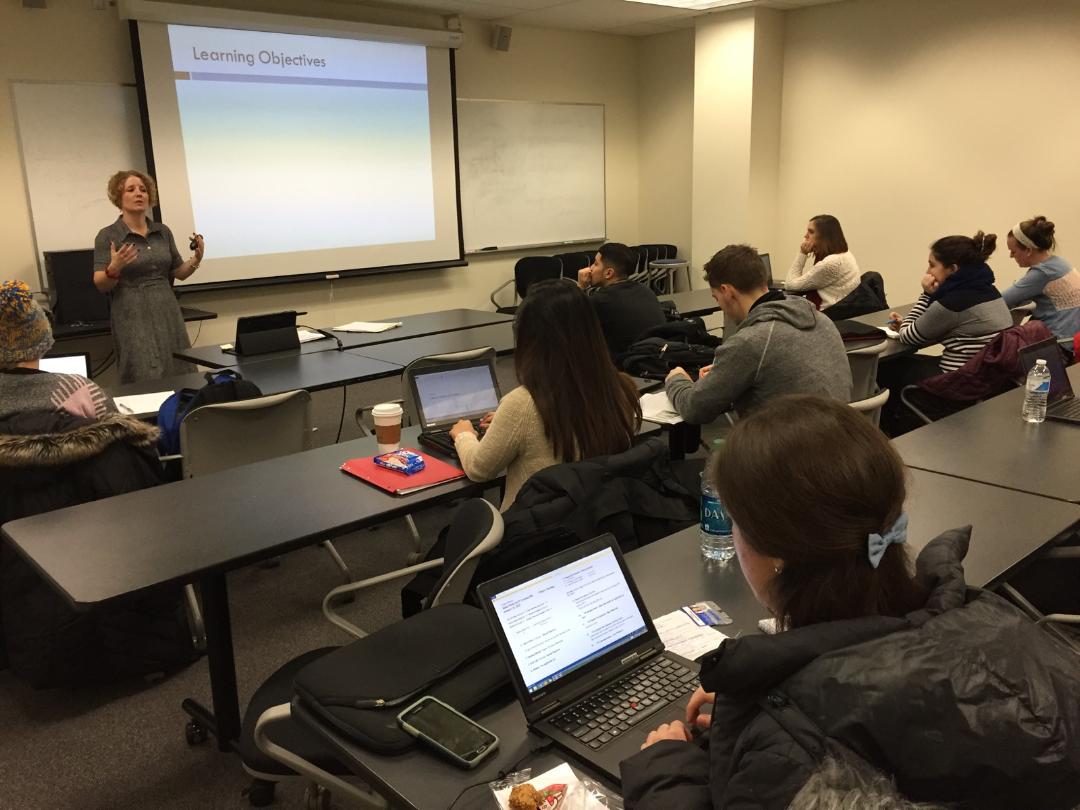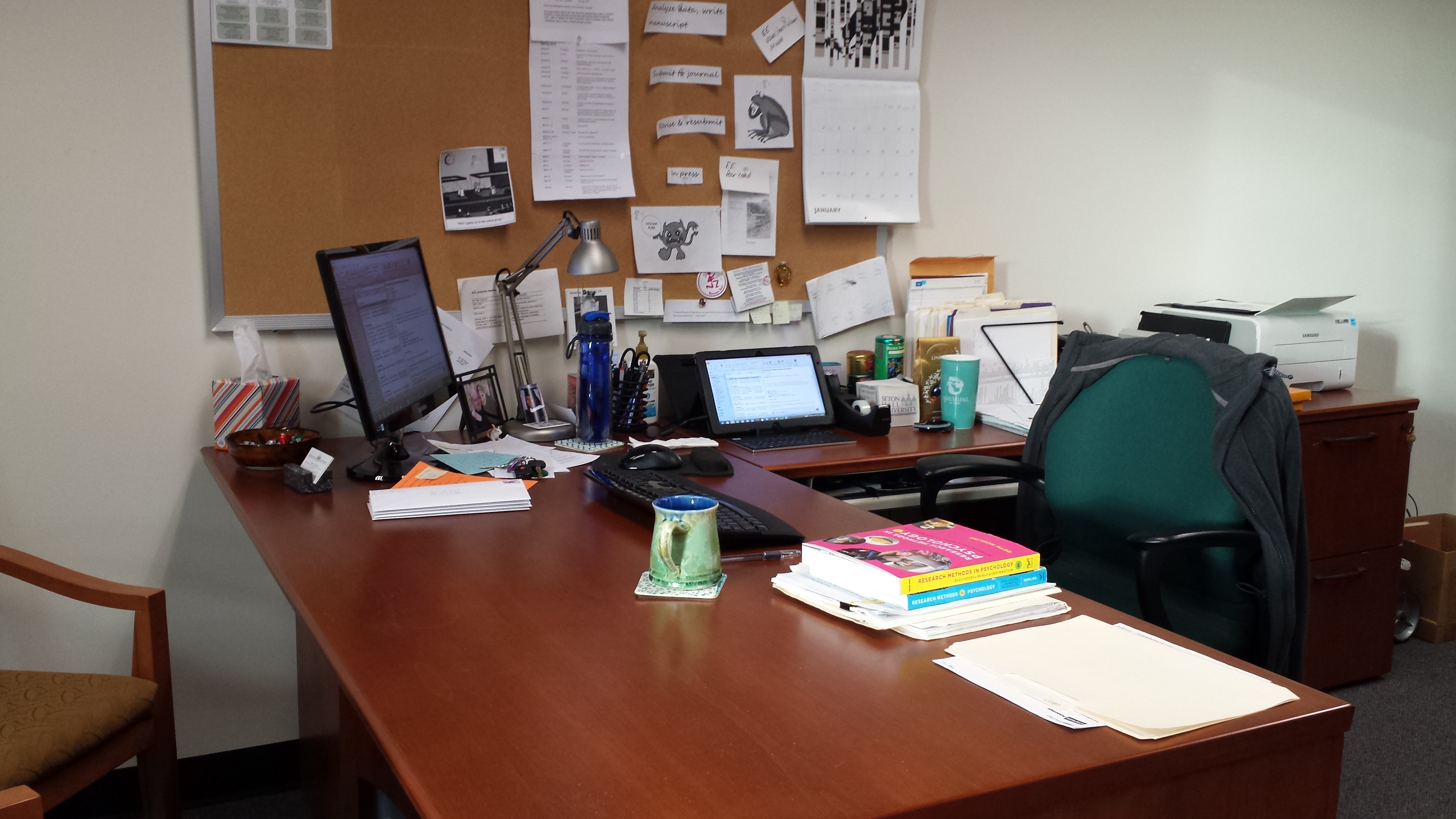 School name: Seton Hall University
School name: Seton Hall University
Type of college/university: medium-sized university granting primarily bachelor’s and master’s degrees
School locale: technically we are located in the Village of South Orange, but we’re in the NYC metro area
Classes I teach: Orientation to the Psychology Major, Biological Psychology, Research Methods, Neuropsychology of Religious Experience, Psychopharmacology (graduate)
What’s the best advice about teaching you’ve ever received?
Don’t be afraid to say that you don’t know the answer to a student question, but look up the answer and get back to them. Particularly now that students can look up the answer to a question in real time during class, fumbling your way through an answer when you don’t really know it will almost certainly backfire. Be a role model for your students with an attitude of intellectual curiosity and be sure to follow up with them. I can’t count the number of students who said they were surprised that I looked up information and mentioned it at our next class meeting!
What book or article has shaped your work as a psychology teacher?
There are many, but two that stand out are McKeachie’s Teaching Tips and Effective College and University Teaching, edited by Buskist and Benassi.

Tell us about your favorite lecture topic or course to teach.
I have two favorite courses: Biological Psychology and Research Methods. Both of these courses have a well-deserved reputation for being challenging, and although the content of each course is different I see my role as fundamentally similar: it’s my job to demonstrate how the material is relevant to my students’ professional and personal lives.
In Biological Psychology, I point out that whether or not they end up working directly with clients, an understanding of the relationship between biology and behavior will undoubtedly be useful. Topics such as the nature of the placebo effect, stress and stress-related illnesses, and the mechanism of action of psychotropic medications are almost certain to be directly relevant to them at some point in their lives, and knowledge of the biological components of these topics is essential for a fuller understanding of them.
In Methods, I emphasize that we are constantly presented with all types of advice, much of which is contradictory: the “best” diet, the “best” way to raise children, the “best” way to deal with stress. An understanding of how to appropriately design a study to answer a research question and the types of conclusions that can be drawn from a particular type of design can help us to determine the validity of this advice and, in turn, can help to enhance our own lives as well as the lives of those around us.
What teaching and learning techniques work best for you?
My techniques vary based on the course material. Some courses lend themselves to a discussion-based format, others may work well with a “flipped” technique, and still others may be best served in a more traditional lecture format. Regardless of the course structure, I always strive to be transparent and consistent to the greatest extent possible. I develop rubrics and give them to students, explicitly describe class procedures in the syllabus and follow them during the semester, and do my best to be explicit and consistent in grading.
 What’s your workspace like?
What’s your workspace like?
At the start of each semester, my office is pretty organized; there may be piles of papers, but they are mostly arranged in a coherent fashion. As the semester goes on, though, the number of piles increases and the level of organization decreases. Typically by the last few weeks of the semester my office is barely controlled chaos.
Three words that best describe your teaching style.
Enthusiastic, challenging, transparent.
What is your teaching philosophy in 8 words or fewer?
Teaching is a privilege. Treat it as such.
What is something your students would be surprised to learn about you?
I’m not shy about bringing up my life outside the office, so I don’t think there’s much that would surprise them. Students who talk to me outside of class – or even those who pay attention to the types of examples I use during class – soon figure out that my primary hobbies are running, cooking, and eating (although not necessarily in that order). Students may be surprised at the extent to which I do these things with my colleagues, though.
What are you currently reading for pleasure?
I’m between books right now, but next on my list is Choke: What the Secrets of the Brain Reveal About Getting It Right When You Have To by Beilock. As a relatively new department chair, I also want to re-read Straight Man by Russo.
What’s your hallway chatter like? What do you talk to colleagues about most (whether or not it is related to teaching/school)?
Because we genuinely get along with each other, our hallway chatter is an equal mix of the professional and the personal: one minute we may be talking about our research, construction projects on campus or some new academic initiative, the next a new restaurant or weekend plans.
